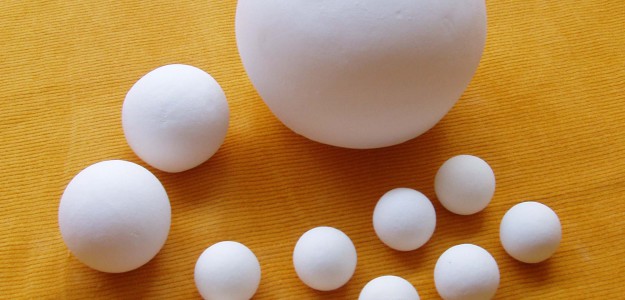Main specifications of Alumina Inert Balls Type BSM-900
| Item | Value |
|---|---|
| AL2O3 | >99 % |
| SiO2 | 0.14 % |
| Fe2O3 | 0.05 % |
| TiO2 | 0.017 % |
| CaO | 0.001 % |
| MgO | 0.001 % |
| K2O | 0.04 % |
| Na2O | 0.39 % |
| Water Absorption | <5 % |
| Packing density | 1.8 – 2.2 kg/l |
| Specific Gravity | 3 – 3.5 kg/l |
| Operation temp. (max.) | 1600 degrees Celsius |
| Apparent Porosoty | <5 % |
Size and Crush strength
| Diameter(mm) | Φ 3 | Φ 6 | Φ 13 | Φ 19 | Φ 25 | Φ 38 | Φ 50 | Φ 76 |
| kg/particle | > 203 | > 459 | > 877 | > 1220 | > 1630 | > 2340 | > 3460 | > 4790 |
Applications for BSM-900:
- Ammonia production: herewith temperatures can reach 1250℃ with pressures as high as 3500kpa.
- Methanol and hydrogen production: primarily reforming.
- Alkylation process using hydrogen fluoride at high temperatures.
- Naphtha reforming.
- Isomerization.
Thermal shock resistance test for BSM-900
- Randomly pick 100 particles of BSM-900 from the batch or shipment.
- For each sample selected, heat it up to 1100℃ and maintain them at this temperature for 30 minutes.
- Drop the hot balls into cold 20℃ water.
- Repeat steps two(2) and three(3) ten times on each and every ball in the sample lot.
- Examine the balls on clear signs of breakage and /or cracking. Our standard goal is that all the balls remain intact.


